Supply Chain Management
The provenance of materials and labour conditions of workers in the supply chain are of increasing concern, with the onus on the principal contractor to forge secure supply chain relationships and seek verification from suppliers and their sources. ISO 44001 Collaborative Business Relationships Management System provides guidance for contractors.
The new ISO Standard ISO 20400 launching in 2017 gives detailed guidance on implementing sustainable procurement.
Contractors will largely question construction product manufacturers on issues surrounding materials sourcing and the ethical conditions of the workforce in the supply chain.

Company level
Principal means of evidence reporting by manufacturers
The UK Modern Slavery Act 2015 is designed to tackle slavery in the UK. It includes Part 6 on Transparency in Supply Chains (TISC) wherever they may be in the world - giving the Act global reach.
Any business operating in the UK with an annual turnover above a £36m threshold is required to publish an annual slavery and human trafficking statement online. There are however no legally binding requirements to conduct due diligence on supply chains, and no criminal or financial penalties for non-compliance.
These Regulations require applicable companies to publish information about their payment practices and policies, and performance against these.
The aim is to increase transparency of large companies’ payment policies and provide smaller suppliers with better information about poor payment.
Reporting requirements aim to drive payment practice improvements, reducing late payment and cashflow problems for SMEs in the UK.
Secondary means of evidence reporting by manufacturers
Under this Directive certain large organisations are obliged to prepare a non-financial statement relating to environmental, social, employee-related, respect for human rights, anti-corruption and bribery matters.
The statement should include a description of policies, outcomes and risks related to these matters, and be included in management reporting. Details about due diligence processes where relevant and proportionate, and supply and subcontracting chains should also be included, to identify and prevent existing and potential adverse impacts.
A number of frameworks are in place to guide the provision of this information, including the international United Nations Global Compact.
ISO 26000 provides guidance on social responsibility best practice – acting in an ethical and transparent way to contribute to the health and welfare of society.
Providing guidance rather than requirements, ISO 2600:2010 cannot be certified to.
This new International Standard provides guidance to help organisations practice sustainable procurement, improve the sustainability performance of the supply chain and reduce risk with strong emphasis on social issues and human rights.
There is no certification aspect.
Major clients such as HS2 may seek knowledge of supplier actions on ethical sourcing, asking due diligence to be demonstrated through routes including the ILO Declaration on Fundamental Principles and Rights at Work.
This Declaration commits UN Member States to respect and promote principles and rights in four categories:
- Freedom of association and the effective recognition of the right to collective bargaining
- The elimination of forced or compulsory labour
- The abolition of child labour
- Elimination of employment or occupation-related discrimination
The Ethical Trading Initiative (ETI) (ETI) is an alliance of companies, trade unions and NGOs that promotes respect for workers' rights around the globe. It has developed the ETI Base Code founded on the conventions of the International Labour Organisation (ILO) and this has become an internationally recognised code of labour practice. Companies with a commitment to ethical trade can adopt the ETI code of labour practice.
For construction products, the ETI runs a programme with partners to improve conditions for workers quarrying red sandstone in Rajasthan, India and exported overseas.
Launched in 2016, BRE’s Ethical Labour Sourcing Standard focuses on human rights due diligence and overall ethical approaches to organisational and supply chain management.
The framework comprises criteria against which maturity of performance is evaluated across twelve issues. Verification is based on commitment to improve through an agreed set of five objectives.
BSI has published the world’s first ant-bribery standard, designed to help organisations of all sizes and sector-wide to prevent, detect and tackle bribery, comply with anti-bribery laws and voluntary ant-bribery commitments.
It offers guidance for implementing and maintaining an anti-bribery management system that can stand alone or be integrated into an overall management system.
Sedex a platform sharing data, is a not-for-profit membership organisation dedicated to driving improvements in responsible and ethical business practices.
It aims to:
- Ease the burden on suppliers facing multiple audits, questionnaires and certifications
- Drive improvements in the ethical performance of global supply chains
Product level
Principal means of evidence reporting by manufacturers
BRE's BES 6001 is a certification scheme for the responsible sourcing of construction products. To a degree a hybrid between product and company-level certification, it sets out requirements within three key areas:
- Organisational management
- Supply chain management
- Environmental and social issues
The scheme focuses primarily on material traceability through supply chains and the assessment of greenhouse gas emissions and energy use.
A BES certification amongst responsible sourcing certifications may boost material credits within BRE’s BREAM Building Rating Scheme.
This British standard on responsible sourcing of construction products was issued in 2009 as an alternative in the marketplace to the BRE BES 6001 scheme. It provides guidance on how to set up a responsible sourcing scheme - what needs to be put in place administratively, and then what issues the scheme needs to address.
The standard is applicable only at the sector level and cannot be pursued by single companies. This has severely limited its take up.
One of the first material stewardship certification schemes, the Forest Stewardship Council (FSC) allows consumers to identify, purchase and use wood, paper and other products produced from well-managed forests and recycled materials.
FSC responsibly-managed forest standards include Forest Management and Chain of Custody.
An alternate forest certification scheme to FSC, PEFC has recognised certification systems in over 40 countries representing over 300 million hectares of certified forests, making it the largest forest and wood product certification system.
View an online database of PEFC certificate holders.
CARES is an independent, not-for-profit and UKAS-accredited certification body providing product and management systems certification for steel materials and components manufacturers and companies offering services primarily to the reinforced concrete industry.
The CARES SCS Scheme provides independent certification of the environmental performance of steel products, operating in compliance with BS 8902:2009 Responsible sourcing sector certification schemes for construction products.
Constructional steel products from CARES-approved suppliers are fully traceable, allowing an assured chain of custody from mill to site.
In 2016 CARES became a BRE licensee to provide certification to the BES 6001 Responsible Sourcing Scheme. Producers and fabricators can now combine certification with the SCS Scheme.
Eco-Reinforcement is a third-party certification scheme developed by the reinforcing steel industry to comply with BRE Global's BES 6001:2008 Framework Standard for the Responsible Sourcing of Construction Products.
A list of certified companies is available on its website.
Secondary means of evidence reporting by manufacturers
SFI Inc. is an independent, non-profit organisation dedicated to promoting sustainable forest management. Its certification standard is based on principles that protect water quality, biodiversity, wildlife habitat, species at risk and forests with exceptional conservation value.
SFI maintains an online database of certified forest, products and companies.

